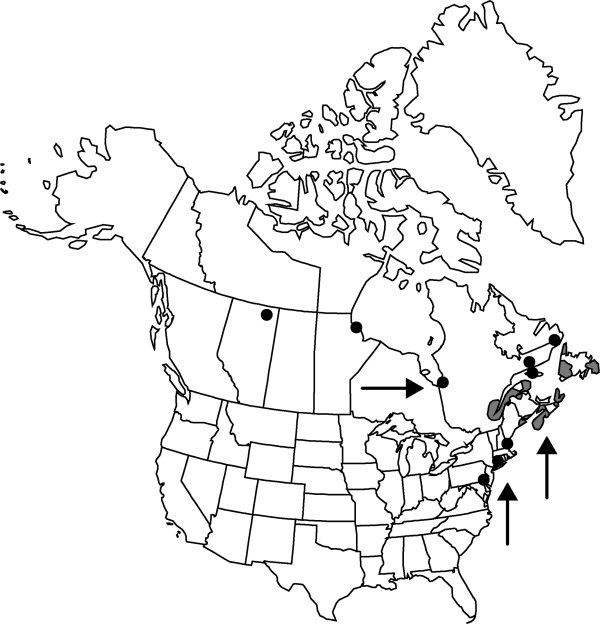Atriplex glabriuscula var. glabriuscula
Herbs, prostrate or sprawling, or sometimes erect, branched, (1–)3–10 dm. Stems green and striped, often blue-green when fresh, weakly ridged, sparsely scurfy to glabrous. Leaves opposite only proximally; petiole 0.3–2.5(–3.5) cm; blade 5–100 × 3–80 mm, base abruptly to narrowly cuneate, all entire or some or all deltoid-hastate with lobes spreading to antrorse and otherwise entire or irregularly toothed. Flowers in loose glomerules, arranged in foliose spikes or axillary, terminating stems and branches. Bracteoles becoming black or reddish, sessile or nearly so, venation obscure, ovate-triangular to rhombic-triangular, 5–13 mm, margin united almost to middle, with few irregular teeth or entire, apex abruptly acuminate, faces irregularly muricate, tuberculate, or smooth, inflated, spongy inner layer strongly developed at bracteole base. Seeds dimorphic: brown, 2.5–4 mm wide, often the only ones present, or black, 1.5–2.5 mm wide. 2n = 18.
Phenology: Flowering late summer.
Habitat: Sandy sea beaches, exposed cobble, ledges, boulders
Elevation: 0 m
Distribution

Introduced; Alta., Man., N.B., Nfld. and Labr., N.S., Que., Conn., Maine, Mass., N.H., Pa.
Discussion
Atriplex glabriuscula is widespread on the Atlantic coast of Europe, whence possibly early or prehistorically introduced as well as potentially indigenous. The distribution of this taxon encompasses completely the geographical distribution of the following two varieties, which occupy salt marshes. Specimens forming the basis of distributional records from Mackenzie, Manitoba, and Ontario are immature, and their identifications are tentative at best. There are numerous examples of plant species with amphi-Atlantic distributions, and A. glabriuscula might well be one of them.
Selected References
None.